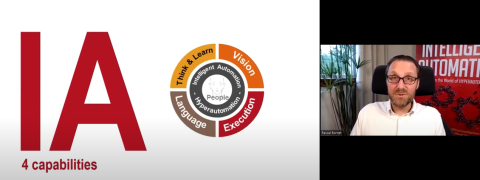IFAC Releases Sustainability Checklist for Small Businesses
The International Federation of Accountants (IFAC) released a Small Business Sustainability Checklist (the Checklist) today to help small- and medium-sized enterprises (SMEs) maximize the benefits of incorporating sustainability into their strategy and business operations.
The Checklist is a diagnostic tool designed to be tailored by each business according to its own unique circumstances, including its industry sector, lifecycle, and products and services provided. It lists a comprehensive range of initiatives and actions to be considered in terms of environmental, social, and governance (ESG) factors. Not all actions in the Checklist will be relevant to every SME, but the Checklist aims to help all organizations to take small steps on what could be a long but highly fulfilling journey.
As outlined in previous IFAC thought leadership, including Sustainability Information for Small Businesses: The Opportunity for Practitioners, small and medium-sized practices (SMPs) are ideally placed to help SMEs on this journey because of their deep business knowledge and expertise. As trusted advisers, they can recognize the risks and opportunities and advise SMEs on how best to act on them.
Monica Foerster, IFAC SMP Advisory Group Chair, said: “SMEs are critical to the global economy through their vital contributions to GDP and employment levels. Thus, they need to be an active part of the conversation on sustainability issues. Moreover, the expectations for SMEs to report on sustainability information, often due to requests from supply chain partners or finance providers, are likely to grow, resulting in new challenges to these businesses. SMPs are ideally placed to help SMEs tackle sustainability-related risks and to help unlock opportunities, enhance resilience, and illuminate the path to becoming future fit.”
The Checklist was developed under the umbrella of IFAC’s work on Practice Transformation, which highlights the need for SMPs to adapt to remain relevant and serve a rapidly changing world. SMPs are also strongly encouraged to use the Checklist to begin their own journey and consider their strategy, policies, and procedures on sustainability. This is also critical to both attracting and retaining the next generation of talent.
The Small Business Sustainability Checklist has been launched together with an expanded range of external resources to help practitioners upskill and build knowledge in this emerging area. IFAC has prepared a dedicated web page that provides material on sustainability reporting, advisory, assurance, and education and training. Professional Accountancy Organizations are encouraged to share the Checklist with their members and highlight the range of additional resources available.
IFAC acknowledges and appreciates feedback from IFAC’s Small and Medium Practices Advisory Group and the Forum of Firms representatives in the development of the Checklist.
About IFAC
IFAC is the global organization for the accountancy profession dedicated to serving the public interest by strengthening the profession and contributing to the development of strong international economies. IFAC is comprised of 180 members and associates in more than 135 jurisdictions, representing millions of professional accountants in public practice, education, government service, industry, and commerce.

